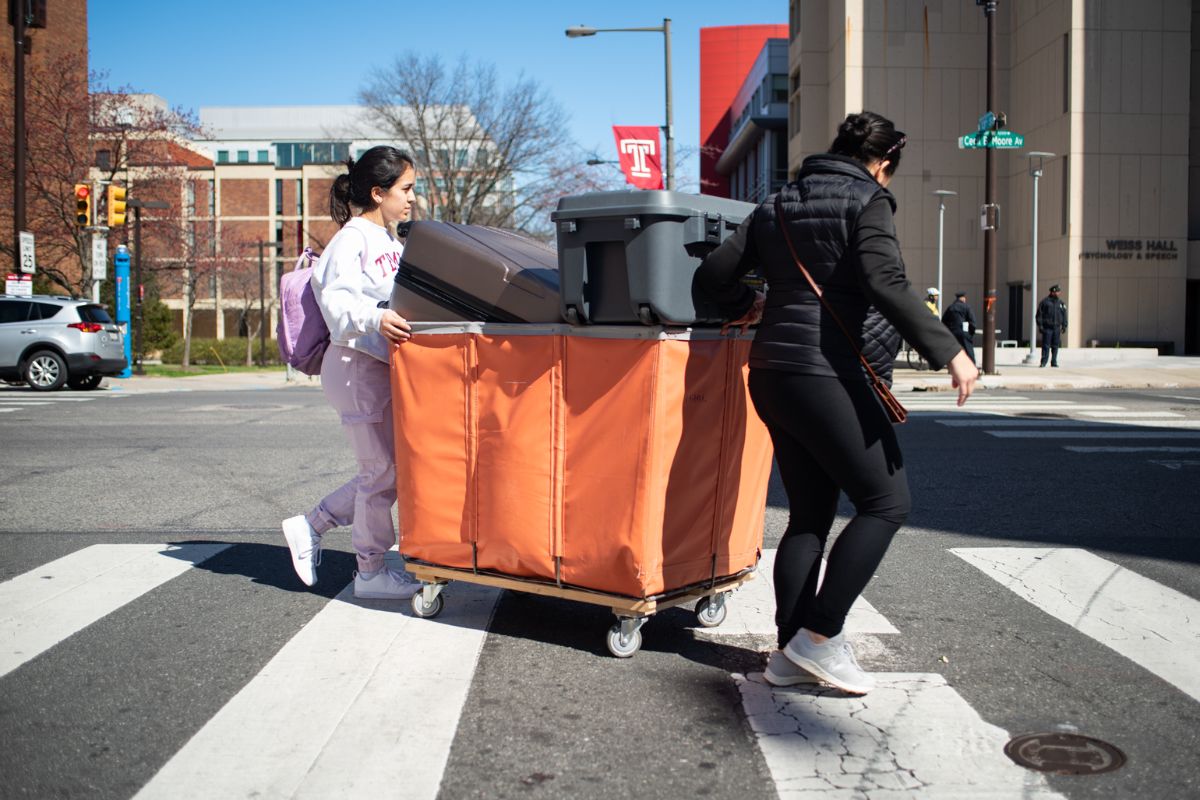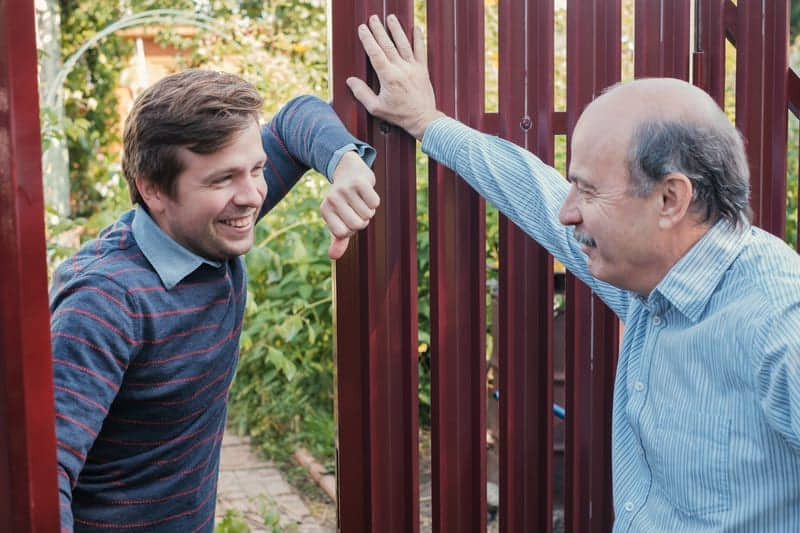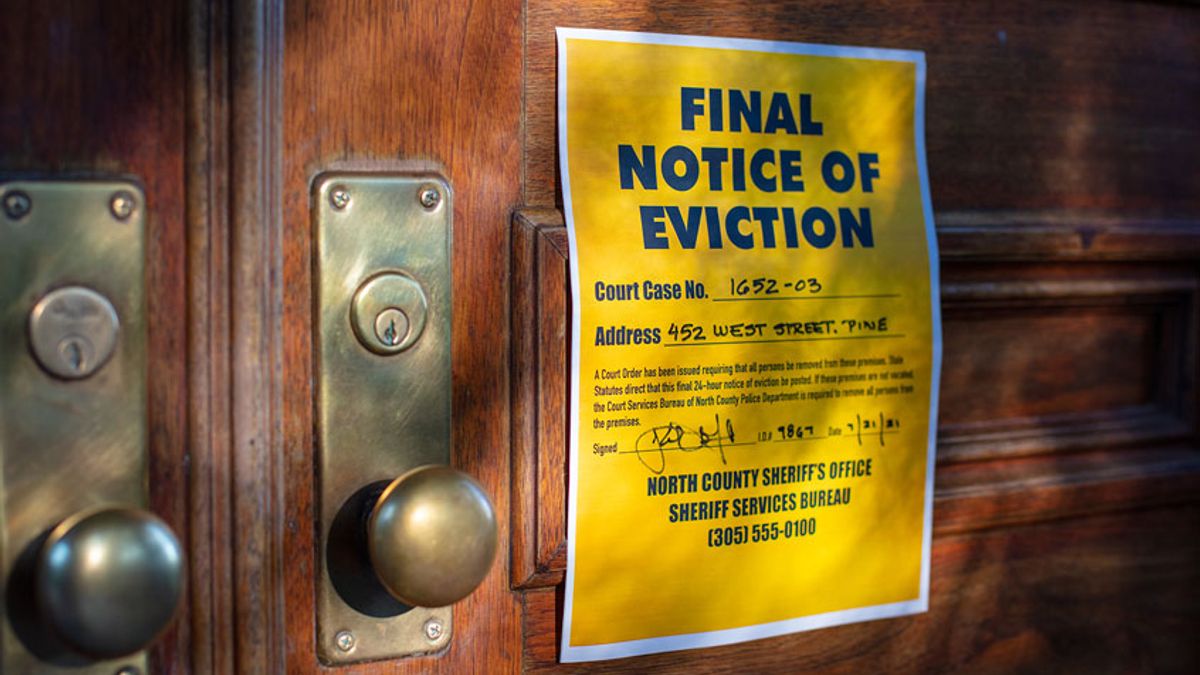As a property owner, you have the right to control what happens on your land. However, what happens when your neighbor's possessions encroach on your property? Can you move them off your land? This is a common question that many property owners ask, and the answer is not as straightforward as you might think.
In this article, we will explore the topic of "Can I Move My Neighbor's Stuff Off My Property?" and provide you with practical tips on how to handle the situation effectively. So, if you're dealing with a similar issue, keep reading to learn more.
Can I Move My Neighbor’s Stuff Off My Property?

In general, you should not move your neighbor's possessions off your property without their consent. Doing so without their permission may lead to legal issues, such as theft or trespassing.
However, there are some exceptions to this general rule. For instance, you may be allowed to move your neighbor's belongings if they pose a danger to your property or if you have given your neighbor sufficient warning to remove them and they have not done so.
If you are unsure about your rights or the legality of the situation, it's best to consult with a lawyer or local authorities. Additionally, maintaining a respectful and open line of communication with your neighbor can often lead to a faster and more amicable resolution.
How To Get Neighbor To Remove Stuff Off My Property?
If your neighbor has placed their belongings on your property, there are a few steps you can take to resolve the issue.
- Talk To Neighbor
- Hire A Land Surveyor
- Hire An Attorney
Talk to your neighbor
The first and most cordial step is to have a conversation with your neighbor. Explain the situation and ask them to remove their possessions from your property. Be polite and give them reasonable time to do so. This approach is often effective and can help maintain good neighborly relations.
Hire a land surveyor
If your neighbor is not cooperating, you can hire a land surveyor to conduct a survey and identify the exact boundaries of your property. This will help you determine if your neighbor has indeed encroached on your property. Once you have the survey report, you can present it to your neighbor to support your request for them to remove their belongings.
Hire an attorney
If your neighbor continues to refuse to remove their possessions, you may need to hire an attorney to represent you. The attorney can file a legal case against your neighbor to resolve the issue. However, this should be considered a last resort, as it can escalate tensions between neighbors and may be a costly and time-consuming process
How To Prevent Neighbor From Putting Stuff On My Property?
Put A Fence
- Install a physical barrier along the property line
- Mark the boundary clearly to discourage encroachment
- Helps to prevent accidental or intentional trespassing
Installing a physical barrier such as a fence or wall along the property line can clearly mark the boundary between your property and your neighbor's. This can discourage accidental or intentional trespassing. A fence can also provide privacy and security for your property.
Put Cameras
- Provide evidence of any encroachment or trespassing
- Can be used to support legal action if necessary
- Can act as a deterrent for potential trespassers
Installing cameras on your property can provide evidence of any encroachment or trespassing by your neighbor. This evidence can be useful in legal action, if needed. Additionally, the presence of cameras can act as a deterrent for potential trespassers.
Put Up A Sign

- Post signs indicating that the property is private
- Reinforce the physical barrier and make it clear that trespassing is not allowed
- Can be especially useful if there is no fence or other physical barrier
Posting signs indicating that the property is private can reinforce the message that trespassing is not allowed. Signs can be especially useful if there is no physical barrier to mark the boundary between your property and your neighbor's. Make sure the signs are clearly visible and comply with local regulations.
Keeping Your Neighbor's possessions off Your Property
- Regularly check your property for any belongings that are not yours
- Promptly remove any items found
- Consider storing your own personal property out of sight
Regularly checking your property for any belongings that are not yours and promptly removing them can prevent your neighbor from using your property as a storage space. Consider storing your own personal property out of sight to avoid any confusion. Posting signs saying "Private Property" or "No Trespassing" can also reinforce the message that your property is not open to the public.
Maintaining an Open Communication with Your Neighbor
- Communicate your concerns with your neighbor in a respectful manner
- Explain the importance of respecting property boundaries
- Can help resolve any misunderstandings that may lead to encroachment
Communicating with your neighbor in a respectful manner and explaining the importance of respecting property boundaries can help avoid misunderstandings and conflicts that may lead to encroachment. Building a positive relationship with your neighbor can make it easier to address any issues that arise in the future.
Documenting Instances of Encroachment
- Keep a written record of each instance of encroachment
- Take photos or video if possible
- Can be useful if you need to take legal action to protect your property rights
Keeping a written record of each instance of encroachment and taking photos or video if possible can be useful if you need to take legal action to protect your property rights. Make sure to accurately document the time, date, location, and details of each incident.
Getting Professional Help
Mediation
Consider seeking the help of a neutral third party, such as a mediator, to facilitate a settlement between you and your neighbor. Mediation is often a less confrontational and more cost-effective alternative to litigation. It can help both parties reach an agreement that is mutually satisfactory and avoids the need for a court battle.
Legal counsel
If you are having difficulty resolving the conflict with your neighbor, it may be helpful to speak with an attorney. A professional attorney can provide valuable advice on your rights and options for resolving the disagreement. They can also guide you through any legal procedures that may be necessary.
Law enforcement
If your neighbor's behavior involves threats, harassment, or illegal conduct, it may be necessary to contact your local police department. It's important to provide the police with any relevant documentation or evidence to support your claims. Law enforcement can help protect your safety and enforce the law in situations where conflicts cannot be resolved through other means.
FAQs about Can I Move My Neighbor’s Stuff Off My Property?
How Do You Resolve Encroachment Issues?
One way to resolve encroachment issues is to talk to your neighbor and try to reach a reasonable agreement. If the structure is not movable, you may agree to leave the encroachment in place with a written agreement or sell the encroached upon property to your neighbor.
If these options fail, taking the issue to court is an option, but it may result in the removal of the structure. Seeking legal advice and understanding your legal rights is important in resolving the issue.
What should I do if my neighbor's pet is regularly on my property?
If your neighbor's pet is frequently trespassing on your property, there are a few steps you can take.
First, start by having a polite conversation with your neighbor and suggest ways to restrict their pet's access, like using a fence or a leash. It's also a good idea to familiarize yourself with local animal control rules and regulations.
If the problem persists, consider contacting animal control or the police for assistance. Additionally, you may want to consult with a lawyer to explore your legal options, which could include obtaining a court order to keep the pet off your property.
Remember to keep evidence of the issue, such as pictures or videos, and use clear and concise language when discussing the matter with your neighbor.
What To Do If A Neighbor Is Damaging Your Property?
Start by talking to your neighbor about the damage. If this doesn't work, take photos of the damage and report it to the police. If the case goes to court and you win, your neighbor will be responsible for paying for the damages.
Can I remove a neighbor's property if it's causing damage to my land?
If the neighbor's property is causing damage to your land, you may be able to take legal action to resolve the issue. It's advisable to talk to your neighbor first and try to find a solution that works for both parties. If that fails, you may need to seek legal advice and consider filing a lawsuit or obtaining a court order to address the issue.
Can I call the police if my neighbor's belongings are on my property?
Yes, you can call the police if your neighbor's belongings are on your property and they refuse to remove them. Trespassing is a violation of property rights, and the police can help enforce these rights. However, if the situation does not pose an immediate threat, it's advisable to talk to your neighbor first and try to resolve the issue amicably.
What Can I Do When My Neighbor Is Messing With My Stuff?
If the neighbor's actions are offensive or dangerous, call the police. Otherwise, document the incidents and file a police report. Consider talking to the neighbor and finding a solution to the problem. If necessary, seek legal advice and consider a restraining order.
Conclusion
In most cases, it is not legal to move your neighbor's belongings off your property. Depending on the circumstances, however, you may be able to do so if they pose a danger or you have given them reasonable warning and they have not taken action.
It’s best to consult with local authorities or a lawyer about the legality of the situation before taking any steps. Additionally, maintaining a respectful and open line of communication with your neighbor can often lead to a faster and more amicable resolution.
To prevent trespassers from encroaching on your property, consider installing physical barriers such as fences or walls along the boundary line, placing cameras on your property as evidence, and posting signs indicating that the area is private. Finally, documenting instances of encroachment and keeping a written record can be helpful if you need to take legal action in the future.
Thank you for reading! We hope this article was helpful in answering the question can i move my neighbor's stuff off my property.





